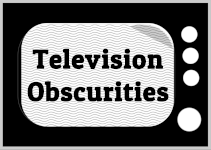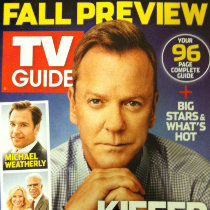Over the past few days I’ve managed to watch six episodes of The Mike Wallace Interview at the Harry Ransom Center at the University of Texas at Austin while doing research for my article about the show. Some of the interviews I watched because I was interested in the guest or the subject while others I chose to watch because they were, at least on the surface, controversial. It was fascinating to watch interviews that ran for thirty minutes with no editing and only the occasional interruption so Mike Wallace could hawk cigarettes.
The interviews are raw. It is obvious that both Wallace and his guests, while perhaps prepared in some small ways, had no idea where the questions and answers would lead them. They interrupt one another and talk over one another and at times go silent momentarily as if unaware a national audience was watching. Wallace has at his fingertips articles and quotes, facts and figures, and uses them to guide his questioning, but also reacts quickly to responses made by his guests.
As for the guests, for the most part the six that I saw were for the most part calm and collected, articulate and focused, and made for wonderful conversation. Diana Dors, for example, began most of her responses with either “Well…” or “Oh…” but once she got going her answers were specific and revealed her to be a clever, affable young woman. Jean Seberg was likewise shown to be far more perceptive and grounded than someone in her position (thrust into the glare of Hollywood) should be.
Of course, given the unfortunate aspects of Seberg’s later life and her death at in 1979, it was somewhat unsettling to hear her discuss how she had become a little bit quieter and more guarded in her life due to her sudden fame. She talks about having a public private face and working hard to not appear synthetic. Wallace closes the interview by stating, “What she said tonight and the way that she said it would seem to indicate that Miss Seberg’s Cinderella story will have a happy ending.”
Perhaps even more foreboding was Wallace’s interview with 12-year-old Leonard Ross, who at the time had recently won $164,000 dollars from game shows. He came across as an incredibly brilliant, incredibly self-aware child who was comfortable with himself and his intellect. His life would spiral out of control, leading to his death in 1985 at the age of 39. Here‘s an insightful article from The New York Times about Ross.
The other interviews I watched were those with Donald Keyhoe, Eldon Edwards and Drew Pearson. Pearson’s charge that Senator Jack Kennedy wasn’t the author of Profiles in Courage led ABC to issue a retraction. But otherwise, the interview was rather dull, to be honest, made up entirely of talk regarding politics at the time. Keyhoe spent his time insisting that the Air Force was covering up the existence of UFOs, which wasn’t all that intriguing. And Eldon Edwards, Imperial Wizard of the U. S. Knights of the Ku Klux Klan, came off as entirely unprepared and, like Keyhoe, insisted that all of sources Wallace quoted were fake. Sitting opposite Wallace in his Klan garb, denying that anyone saw the Klan as comical, Edwards cut a less than imposing figure.
Obviously, anyone watching The Mike Wallace Interview will find it incredibly dated. Not just the references and politics, the constant smoking and blatant cigarette promotion, but the atmosphere and tone is entirely unfamiliar to viewers used to today’s television journalism. In that respect, watching episodes of The Mike Wallace Interview is taking a trip back in time. The Ransom Center has provided a wonderful resource for television scholars, critics and fans.





